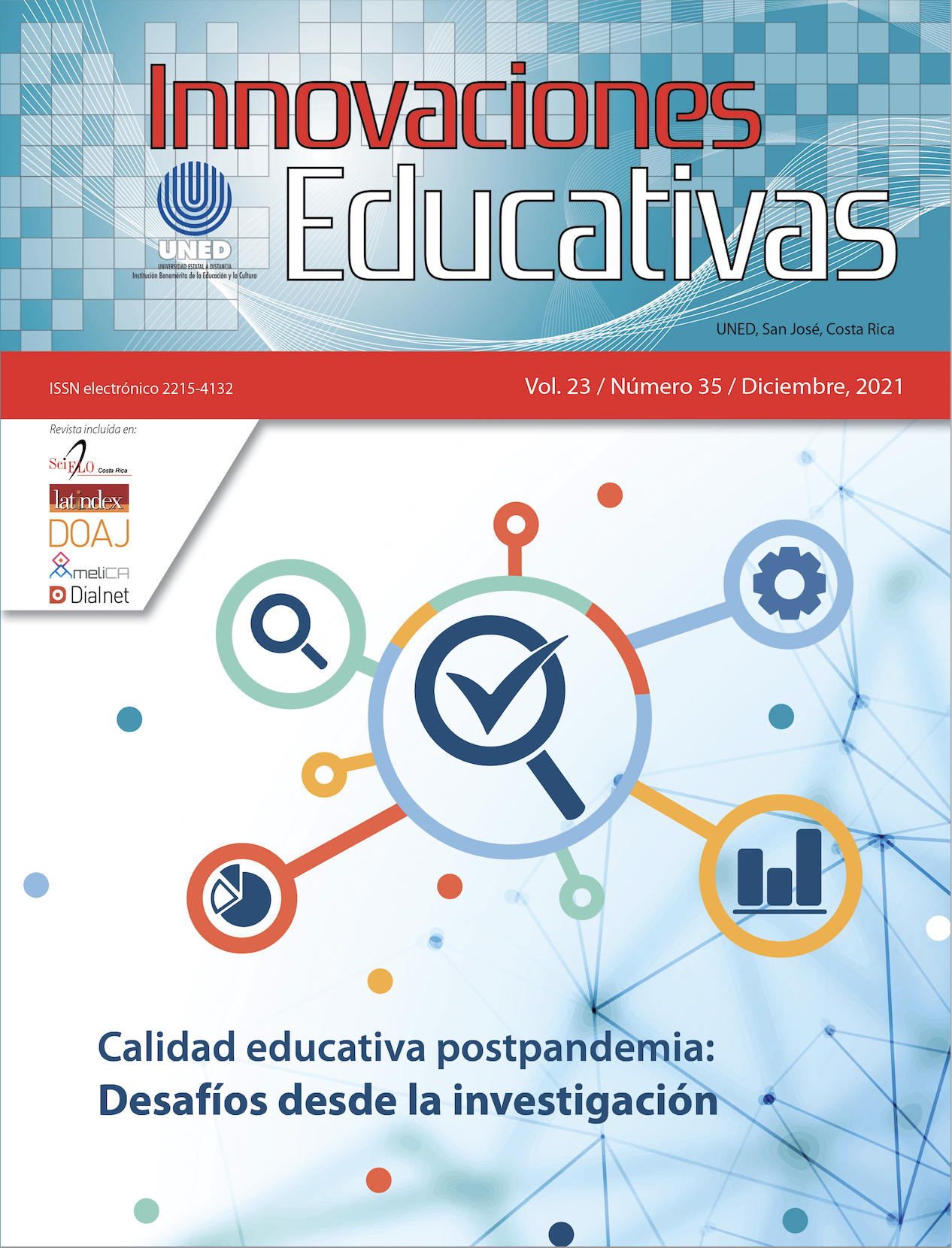The post-pandemic restructuring of education
DOI:
https://doi.org/10.22458/ie.v23i35.3835Keywords:
educational transformation, post-pandemic, cooperation, the right to an educationAbstract
The COVID-19 health emergency has thwarted many of the educational systems worldwide. As a result, some of the gaps and inequalities in Ibero-America became evident, with important challenges related to the quality and equity of education. Firstly, the most immediate need is to promote strategies for the return and recovery of educational processes, with a particular focal point on the most vulnerable groups who have been most affected during this period. We must bet on a profound transformation of the system in the long term. It is about taking advantage of this crisis to review the educational model promoting learning throughout life and for all. Advancing in this task requires proposals supported by public policies built in cooperation and inter-institutional collaboration along with strategies for institutional strengthening and capacity development.
References
BANCO MUNDIAL (2021). The COVID-19 pandemic: shocks to education and policy responses. Recuperado de https://www.bancomundial.org/es/topic/education/publication/the-covid19-pandemic-shocks-to-education-and-policy-responses
COMISIÓN ECONÓMICA PARA AMÉRICA LATINA Y EL CARIBE [CEPAL] (2021). La paradoja de la recuperación en América Latina y el Caribe. Crecimiento con persistentes problemas estructurales: desigualdad, pobreza, poca inversión y baja productividad. Informe Especial COVID-19. N.º 11. Santiago.
COMISIÓN ECONÓMICA PARA AMÉRICA LATINA Y EL CARIBE/ORGANIZACIÓN DE ESTADOS IBEROAMERICANOS PARA LA EDUCACIÓN, LA CIENCIA Y LA CULTURA [CEPAL/OEI] (2020). Educación, juventud y trabajo: habilidades y competencias necesarias en un contexto cambiante. Documentos de proyectos (LC/TS.2020/116). Santiago, Chile.
DÍAZ, T. (2020). ¿Cuál es el sentido de la escuela digital que viene? En Fundación Santillana (2020). La escuela que viene. Una mirada para la escuela de hoy. Madrid: Fundación Santillana.
FONDO MONETARIO INTERNACIONAL (FMI) (2021). Perspectivas de la economía mundial. Recuperado de https://www.imf.org/es/Publications/WEO/Issues/2021/07/27/world-economic-outlook-update-july-2021#:~:text=Las%20perspectivas%20econ%C3%B3micas%20han%20divergido,por%20sus%20siglas%20en%20ingl%C3%A9s).&text=Se%20proyecta%20que%20la%20econom%C3%ADa,4%2C9%25%20en%202022.
ORGANIZACIÓN DE ESTADOS IBEROAMERICANOS PARA LA EDUCACIÓN, LA CIENCIA Y LA CULTURA [OEI] (2019). Miradas sobre la educación en Iberoamérica: proyecto de revisión de los indicadores de las Metas Educativas 2021. OEI.

